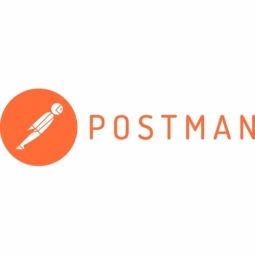Suppliers
United States
Postman
Overview
This profile is not managed yet, if you would like to manage
this profile, please contact us at team@asiagrowthpartners.com
this profile, please contact us at team@asiagrowthpartners.com
 |
Postman |
| United States | |
| San Francisco | |
| 2014 | |
| Private | |
| $100m-1b | |
| 201 - 1,000 | |
| Open website |
IoT Snapshot
Technology Stack
Case Studies
Number of Case Studies4
|
ChargeHub Boosts Developer Productivity and API Quality with Postman
ChargeHub, a service that helps drivers locate over 120,000 public EV charging points across North America, faced a significant challenge in maintaining its always-on platform. The company aggregates real-time data from third-party providers and its community of drivers, which it then makes available to drivers through its mobile and web apps. ChargeHub's API is also featured in mapping products, in-car entertainment systems, and elsewhere. The company recently launched ChargeHub Passport, an app that allows drivers to use multiple charging networks. With thousands of consumers relying on ChargeHub and strict SLAs governing API availability to partners, there was no room for downtime or inaccurate data. The challenge for ChargeHub's agile engineering teams was to maintain high-quality standards without compromising productivity. They identified handover between teams as a particularly risky moment in their development lifecycle, with ad hoc methods of teaching and learning APIs damaging both productivity and code quality. |
|
|
Cvent's Transformation of API Discovery and Quality with Postman Collections
Cvent, a global event management platform, faced significant challenges with its API discovery due to its adoption of a microservices architecture. The company's portfolio of private, partner, and public APIs had grown immensely, making API discovery almost impossible. This was further complicated by the presence of hundreds of software development teams located around the world. Without a central source of API truth, engineers often recreated functionality that was already available elsewhere in the company. Additionally, the lack of a common API toolset across the company led to less productive collaboration between teams and longer onboarding times for both internal and partner developers. The company's engineering leadership recognized the need for a solution that would address their API discoverability and exploration challenges while maintaining speed and ease of development. |
|
|
Lightspeed Commerce Streamlines API Governance and Accelerates Onboarding with Postman
Lightspeed Commerce, a provider of cloud-based point of sale platform for the retail and hospitality industries, was facing challenges in implementing an API-first strategy due to inconsistent API tooling, standards, and processes across their multiple development teams. The company, with teams across North America, Europe, and Asia Pacific, serving businesses in over 100 countries, recognized the benefits of an API-first strategy for easier collaboration and exposing internal functionality to partners. However, the transition was proving difficult. The Hospitality team, working primarily with external partners, was particularly affected. They needed to accelerate their API development cycle and improve quality, as reliance on legacy manual processes had led to slow feedback cycles, unclear onboarding path for new developers, and inconsistent quality. |



